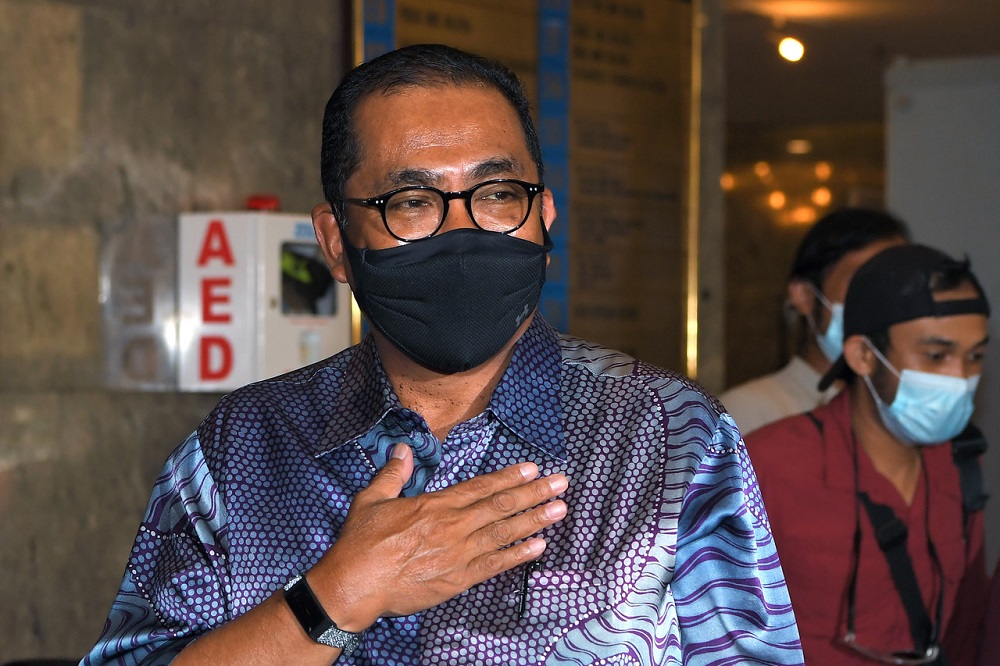KUALA LUMPUR, July 10 — Umno vice-president Datuk Seri Mohamed Khaled Nordin has backed the call for a change of the country’s leader.
In a statement today, he said the idea of changing a country’s leader during a time of crisis is nothing “strange” or “irresponsible” given that many other countries have done the same.
“Especially if a leader has failed to navigate the crisis and has lost the confidence of the people let alone support from the lawmakers,” Khaled said in reference to Umno pulling its support from the Perikatan Nasional-led (PN) government.
He cited several countries’ leaders who had stepped down due to their failed management of the Covid-19 crisis such as Italian Prime Minister Giuseppe Conte was forced to resign in January after the Italia Viva party led by Matteo Renzi withdrew from the government coalition.
Khaled also cited a similar situation where Slovakia’s President Zuzana Caputova had in March replaced Prime Minister Igor Matovic with Finance Minister Edward Heger when the country recorded one of the highest Covid-19 death rates in the world.
“All of these are among the examples of leadership changes, either voluntarily or fired or implications of loss of support during a pandemic period.
“Umno’s decision to pull its support from the prime minister (Tan Sri Muhyiddin Yassin) last Wednesday was a mixed bag of reactions.
“However, anyone will agree that the seven failures of the prime minister and his government outlined by Umno as the basis for pulling out are clearly grounded,” he said.
Khaled, who is a former Johor mentri besar, said Muhyiddin’s failures are not merely critical facts, but instances that could have been avoided had the prime minister acted swiftly and was willing to consider some, if not all, of Umno’s suggestions to confront the pandemic.
“Some have argued that it is important for all of us to focus our efforts to combat Covid-19 and set aside any politically motivated actions. Such a view is true, but not entirely accurate.
“This is because the basis of such optimism rests on the assumption that those given the responsibility to manage the pandemic are most qualified and able to bring about the anticipated recovery.
“Unfortunately, that is not the case in the context of Umno’s withdrawal of support for this prime minister this time around,” he said.
With the withdrawal of support, according to Khaled, Umno is hopeful of achieving several goals including instilling the realisation in Muhyiddin and PN that their strategies and actions have failed and that it would be foolhardy to continue with the same plan or approach.
“Second, this withdrawal of support could effectively quash any riddles or rumours on the prime minister’s claimed parliamentary majority.
“It could provide a space for a re-evaluation of the Dewan Rakyat’s confidence in the prime minister,” said Khaled.
He added that the withdrawal of support also showcased Umno’s seriousness as a party on its demands for the people and that there can be no compromise when it comes to the welfare of the people and the country.
“It is not something to be taken lightly with a half-cooked strategy that is repeated even when it has failed miserably.
“In the bigger interest of the country, any offer of government positions to some of its leaders will not change the overall stand of Umno,” he said.
At the same time, Khaled said the party wishes to instil confidence or hope among the people.
“After witnessing a severe government trust deficit evident by people-centred movement such as the #BenderaPutih movement, a new leader could certainly bring with him fresh hope and expectations.
“Hopefully, in the future, anyone aspiring to lead the country will provide the solution the country really needs.
“Public trust towards the government and its institutions are at an all-time low, and the country badly needs someone who can project a sense of security and get us out of the mess we are in,” he said.
In late June, the #BenderaPutih movement was initiated spontaneously by the public, where those who needed help were asked to put up white flags as a way to subtly signal their cry for aid without feeling humiliated.
The new slogan appeared on the back of increased reports of suicide or attempted suicides amid mental and economic challenges during the total lockdown or Phase One of the National Recovery Plan which has gone on for about a month now and which remains in place.



















